The Broads: Couple win landmark case over Environment Agency review
- Published
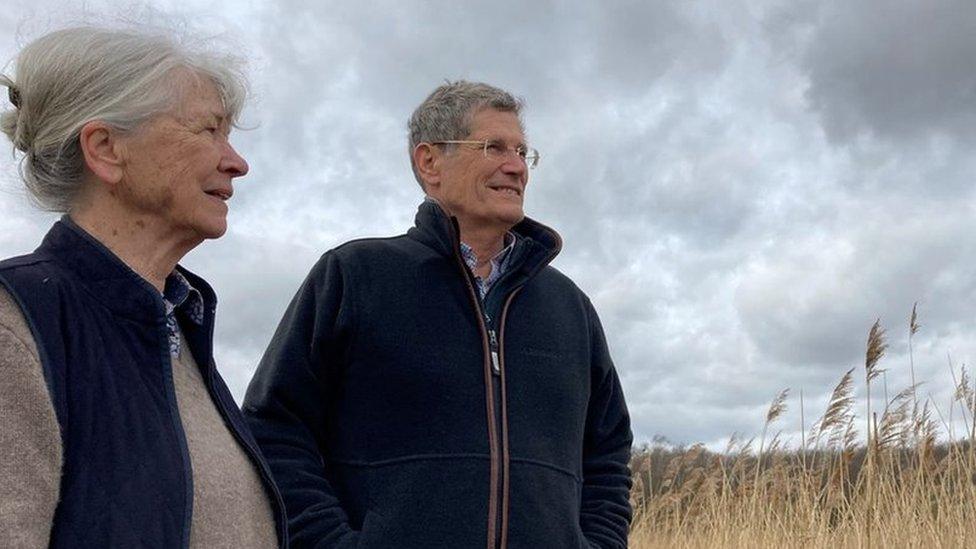
Tim and Angelika Harris want the Environment Agency to broaden the scope of their water extraction review
The use of a European Union directive has helped a couple win a landmark case against the Environment Agency.
Tim and Angelika Harris argued that a review of water abstraction in The Broads did not go far enough to protect wildlife habitats.
The High Court ruled the agency had "acted irrationally" and breached an EU law - still enforceable after Brexit.
The agency said it would see how it could expand its work in the wake of the judgement.
The couple said they had felt compelled "to preserve these unique environments for future generations".
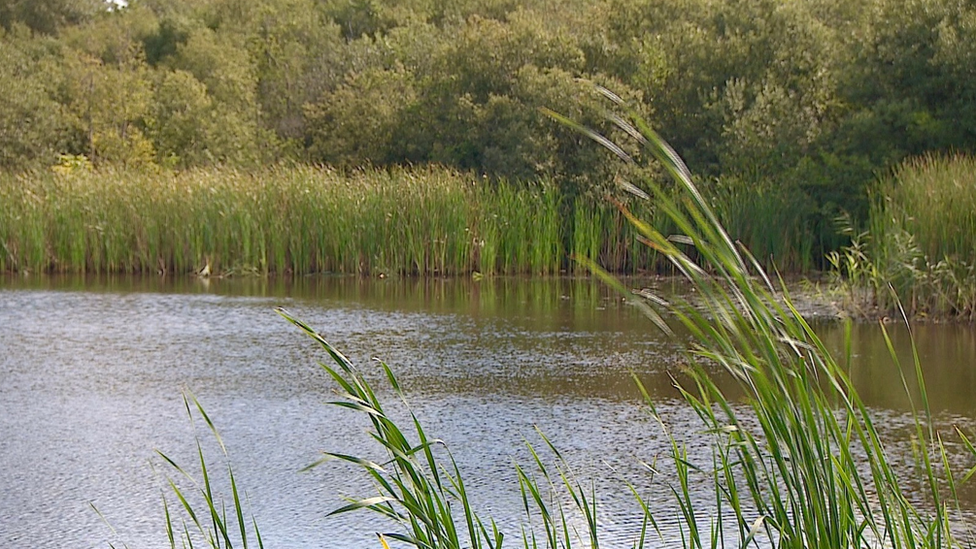
Catfield Fen is a hidden gem, according to Norfolk Wildlife Trust, and is home to some of the region's rarest species
The agency issues licences to allow farmers and landowners to take water from waterways.
It set out plans last year, external to review the environmental impact of 240 licences in Norfolk's Ant Valley, which runs south from Stalham and includes Barton Broad.
It said it would help protect the Site of Special Scientific Interest (SSSI) - which was "facing significant water pressures, with evidence showing that current abstraction levels may be causing damage to the environment".
Mr and Mrs Harris, who own part of Catfield Fen, near the River Ant, said the plans should have included neighbouring sites such as Hickling Broad and Smallburgh Fen.
Catfield Fen, along with nearby Sutton Fen, has 90% of the UK's rare fen orchids and swallowtail butterflies, external.
They brought a judicial review, arguing that the agency "failed to do enough to protect rare wetland species and habitats of international importance from the impacts of water abstraction".

The swallowtail is the UK's largest butterfly and can only be found in the Broads, although it is widespread in countries such as France
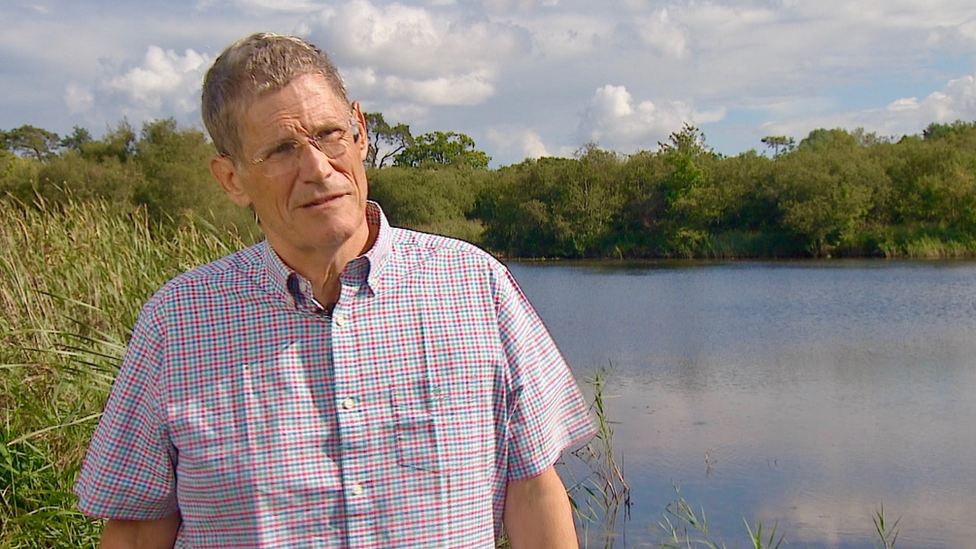
Tim Harris said water abstraction was causing irreversible damage in The Broads national park
The EU Habitats Directive provides for areas containing rare and threatened species and habitats to be designated as "special areas of conservation (SAC)".
The High Court considered a legal provision in the UK's EU-exit legislation, which said EU directives remained enforceable against UK public authorities "if those rules had been recognised by a court as being enforceable prior to Brexit".
A lack of Environment Agency funding was not a valid justification for failing to comply with its legal duties in this case, the court ruled.
Mr and Mrs Harris have campaigned since 2009 to protect the area from damage caused by water abstraction under the agency's licences.

Catfield and Sutton fens are home to the rare fen orchid
Environmental law partner Penny Simpson, of Freeths LLP, who brought the case for the couple, said it was "an important ruling with wide-ranging implications".
"In this case the Environment Agency regulates water abstraction activities and so it was their duty to protect the Broads' conservation areas from damage," she added.
"Even though the UK has left the EU, the UK has not escaped the direct influence of European directives if, prior to Brexit, those rules had been found by a court to be directly enforceable against public authorities.
"We can expect to see other cases like this come forward in other areas".
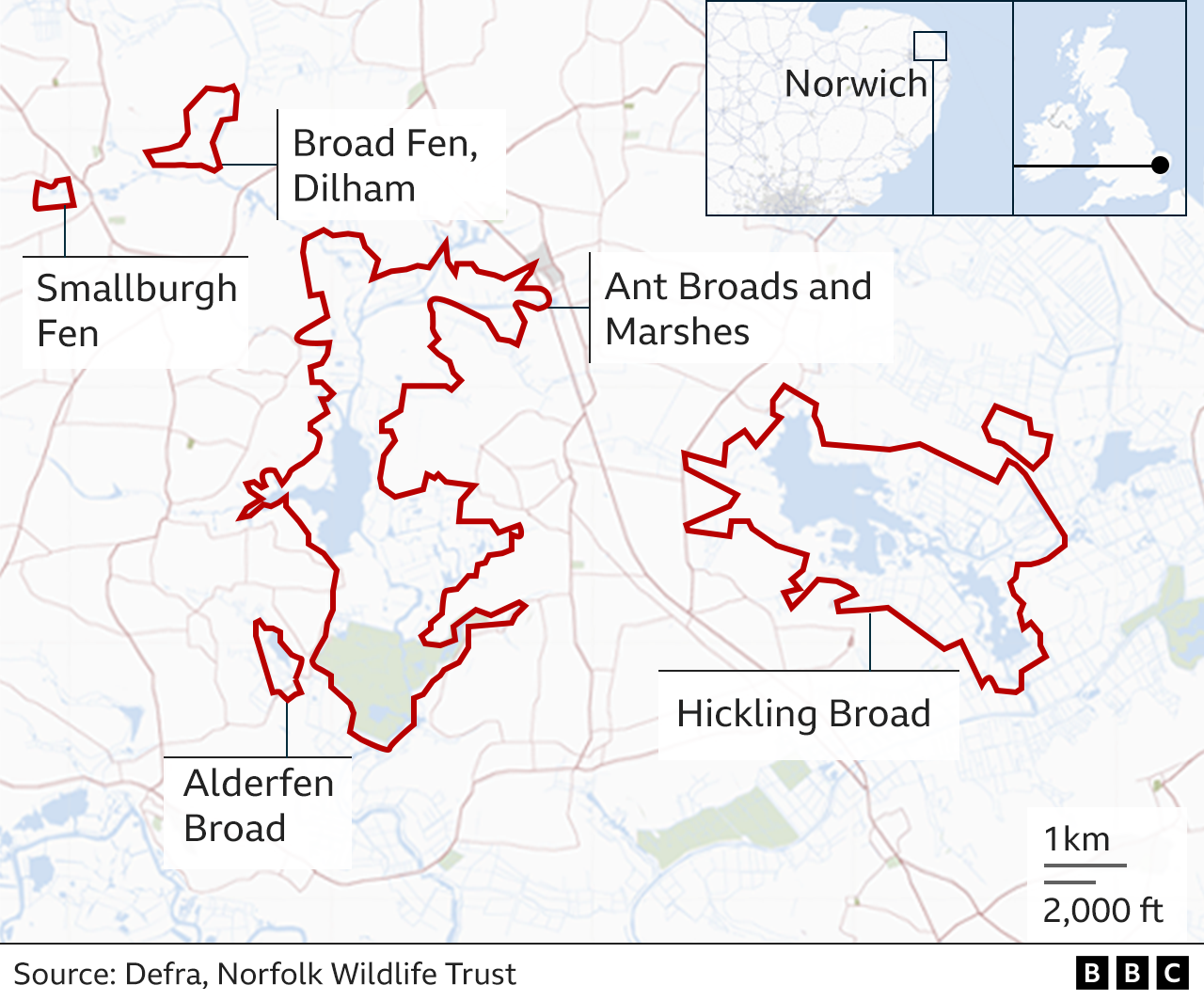
The Environment Agency is investigating water extraction licences in Ant Broad, Dilham Broad and Broad Fen
An agency spokesman added: "We are working to restore, protect and enhance the environment but, like every public organisation, we have limited resources, so focus our efforts on the greatest threats to the environment."As a result of the judgment in this case we will now look at how we can expand our work to cover further protected sites whilst recognising the resource constraints."
The spokesman added it would work with landowners "to ensure that we continue to address unsustainable abstraction".
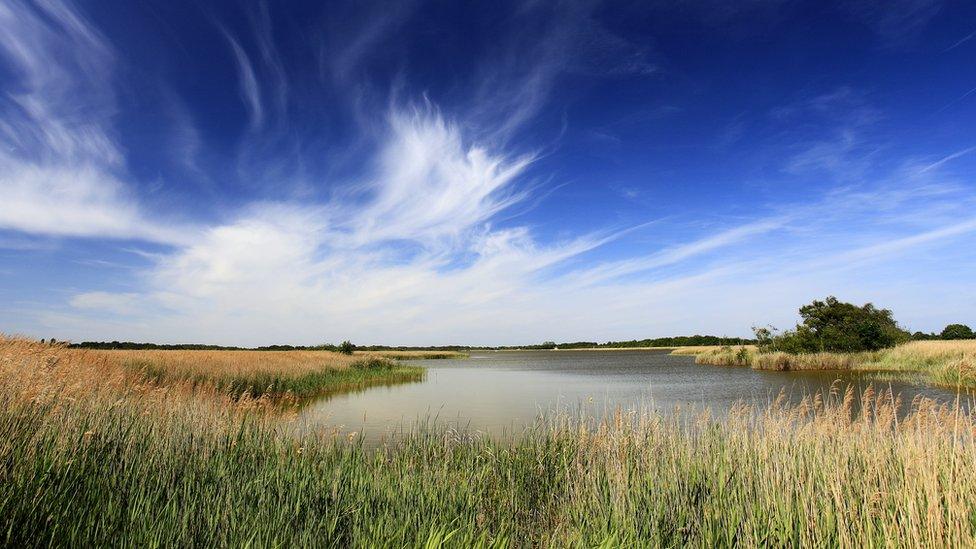
Hickling Broad is one of the areas not included in the Environment Agency's plans to monitor water abstraction impacts
The National Farmers' Union also said it would await further details before assessing the implications for members who needed to water crops.
"It's important that any solutions to the water resource challenges we face find the right balance between food production and environmental protection," a spokesman said.
"But the challenge of securing water for food can't just be solved at the farm level."Co-operation and collaboration with other sectors, such as water companies, will be crucial to achieve long-term solutions."

Find BBC News: East of England on Facebook, external, Instagram, external and Twitter, external. If you have a story suggestion email eastofenglandnews@bbc.co.uk
Related topics
- Published9 May 2022
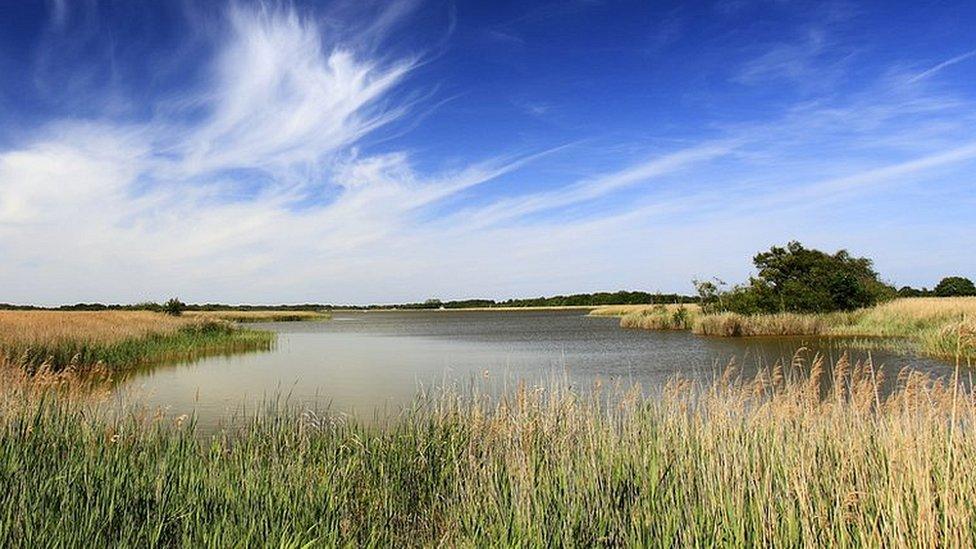
- Published28 October 2021
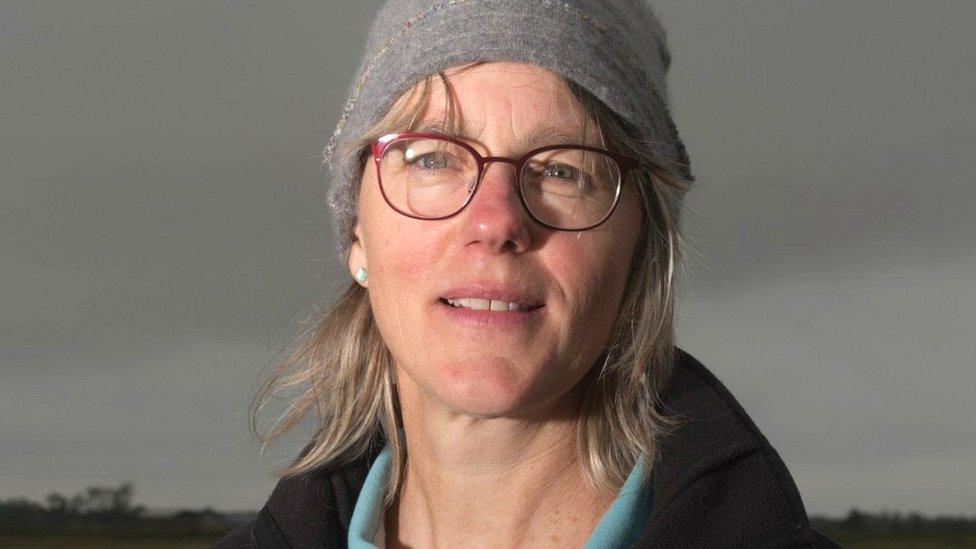
- Published3 June 2019
